With new technologies revolutionizing data collection, wildlife researchers are becoming increasingly able to collect data at much higher volumes than ever before. Now we are facing the challenges of putting this information to use, bringing the science of big data into the conservation arena. With the help of machine learning tools, this area holds immense potential for conservation practices. The applications range from online trafficking alerts to species-specific early warning systems to efficient movement and biodiversity monitoring and beyond.
However, the process of building effective machine learning tools depends upon large amounts of standardized training data, and conservationists currently lack an established system for standardization. How to best develop such a system and incentivize data sharing are questions at the forefront of this work. There are currently multiple AI-based conservation initiatives, including Wildlife Insights and WildBook, that are pioneering applications on this front.
This group is the perfect place to ask all your AI-related questions, no matter your skill level or previous familiarity! You'll find resources, meet other members with similar questions and experts who can answer them, and engage in exciting collaborative opportunities together.
Just getting started with AI in conservation? Check out our introduction tutorial, How Do I Train My First Machine Learning Model? with Daniel Situnayake, and our Virtual Meetup on Big Data. If you're coming from the more technical side of AI/ML, Sara Beery runs an AI for Conservation slack channel that might be of interest. Message her for an invite.
Header Image: Dr Claire Burke / @CBurkeSci

Explore the Basics: AI
Understanding the possibilities for incorporating new technology into your work can feel overwhelming. With so many tools available, so many resources to keep up with, and so many innovative projects happening around the world and in our community, it's easy to lose sight of how and why these new technologies matter, and how they can be practically applied to your projects.
Machine learning has huge potential in conservation tech, and its applications are growing every day! But the tradeoff of that potential is a big learning curve - or so it seems to those starting out with this powerful tool!
To help you explore the potential of AI (and prepare for some of our upcoming AI-themed events!), we've compiled simple, key resources, conversations, and videos to highlight the possibilities:
Three Resources for Beginners:
- Everything I know about Machine Learning and Camera Traps, Dan Morris | Resource library, camera traps, machine learning
- Using Computer Vision to Protect Endangered Species, Kasim Rafiq | Machine learning, data analysis, big cats
- Resource: WildID | WildID
Three Forum Threads for Beginners:
- I made an open-source tool to help you sort camera trap images | Petar Gyurov, Camera Traps
- Batch / Automated Cloud Processing | Chris Nicolas, Acoustic Monitoring
- Looking for help with camera trapping for Jaguars: Software for species ID and database building | Carmina Gutierrez, AI for Conservation
Three Tutorials for Beginners:
- How do I get started using machine learning for my camera traps? | Sara Beery, Tech Tutors
- How do I train my first machine learning model? | Daniel Situnayake, Tech Tutors
- Big Data in Conservation | Dave Thau, Dan Morris, Sarah Davidson, Virtual Meetups
Want to know more about AI, or have your specific machine learning questions answered by experts in the WILDLABS community? Make sure you join the conversation in our AI for Conservation group!
No showcases have been added to this group yet.
- @Eldogk7
- | He/Him
Hardware engineer with 10+ years in IoT & drones, and 4 years in AI, dedicated to sustainability. Developed the world’s first AI soil nutrition sensor & a mine-detecting drone for the Indian Army. As Abhram’s Founder & CEO, I innovate with smart soil sensors & IoT weather station
- 0 Resources
- 1 Discussions
- 4 Groups
- @Janny_gonzalezs
- | she/her
Biology student at Universidad de los Andes | Working in Passive Acoustic Monitoring of birds using autonomous recording units in Colombia's Natural Reserves
- 0 Resources
- 0 Discussions
- 3 Groups
Ecologist specializing in birds. I am an educator at an American university and also a researcher in Peru
- 0 Resources
- 0 Discussions
- 2 Groups
Remote Sensing Surveyor with interest in GIS, data science and bioacoustics.
- 0 Resources
- 0 Discussions
- 3 Groups
- @jivelasquezt
- | He, him, his
Science Director for Audubon Americas | Using biodiversity informatics and data science to drive conservation decisions | Conservation planning, SDMs, GIS & RS| Bioacoustics enthusiast
- 0 Resources
- 0 Discussions
- 2 Groups
Universidade Federal de Santa Catarina (UFSC)
Assistant professor at the Federal University of Santa Catarina (Brazil). Main research interests: autonomous AI-based systems.

- 0 Resources
- 1 Discussions
- 2 Groups
- @Palinda
- | He
Corporate Responsibility Specialist & Sustainability/ Climate Change Professional Helping Conservation, Restoration, Community Livelihood Development ESG strategy and Sustainable Development.
- 0 Resources
- 0 Discussions
- 8 Groups
Universidade Federal do Rio Grande do Norte (UFRN)
I'm a Biologist and currently a master's student. My research focuses on understanding how birds respond to a restoration experiment in a Seasonally Dry Tropical Forest exclusive to Brazil through bioacoustics.
- 0 Resources
- 0 Discussions
- 4 Groups
- @APooran
- | She/her
- 0 Resources
- 0 Discussions
- 9 Groups
- @kristian.cuervo
- | He/Him
Applied Mathematics student in Denmark, interested in applications of mathematics to ecology and nature conservation. Currently interested in developing sensors for perimeter detection in wildlife conservations in Africa.
- 0 Resources
- 4 Discussions
- 9 Groups
- @MorganeLabadie
- | She/Her
I'm an ecology researcher with extensive experience of fieldwork and project management in international contexts. I specialise in wildlife, zoonotic diseases, data collection and analysis using mainly non-invasive techniques (acoustic, camera traps, etc.) and invasive techniques
- 0 Resources
- 0 Discussions
- 4 Groups
- @Jen_NZ
- | she/her
- 0 Resources
- 3 Discussions
- 7 Groups
Introducing The Freshwater Sounds Archive, a global database of sounds produced by freshwater species. Submit your species-specific or unidentified sounds to the archive now and receive recognition for your...
15 March 2024
EcoAssist has now incorporated the Deepfaune v1.1 species identification model for camera trap images, capable of recognizing 26 European species. The model is developed by Deepfaune initiative. More information is...
12 March 2024
Catch up on the conservation tech discussions and events that happened during World Wildlife Day 2024!
7 March 2024
EcoAssist introduces a free African species identification model for camera trap images, capable of recognising 30 species.
5 March 2024
Join us to help prevent biodiversity loss! Understory is hiring a postdoc to lead R&D Development on generalizing Computer Vision models for vegetation identification across space/time/phenotypes.
29 February 2024
Join the Luxembourg Institute of Science and Technology (LIST) in pioneering environmental and ecological monitoring! 🌍💡 As part of ERIN’s Observatory for Climate, Environment, and Biodiversity (OCEB), you'll be at the...
26 February 2024
SNTech are recruiting for 3 roles to assist us to develop computer vision pipelines for underwater monitoring
15 February 2024
We invite applications for the third Computer Vision for Ecology (CV4E) workshop, a three-week hands-on intensive course in CV targeted at graduate students, postdocs, early faculty, and junior researchers in Ecology...
12 February 2024
The primary focus of the research is to explore how red deer movements, space use, habitat selection and foraging behaviour change during the wolf recolonization process.
10 February 2024
Sign up for Data Science for Social Good 2024! This summer program is a great opportunity to get dedicated data science support on a conservation (tech) project or to get rich experience as a student in the field. More...
8 February 2024
Applications open for a PhD position in plant vibroacoustics at the University of Southampton
8 February 2024
We demonstrate the power of using passive acoustic monitoring & machine learning to survey species, using ruffed lemurs in southeastern Madagascar as an example.
23 January 2024
August 2025
event
September 2025
event
event
event
event
October 2025
event
event
event
December 2025
event
March 2026
November 2023
event
17 Products
Recently updated products
| Description | Activity | Replies | Groups | Updated |
|---|---|---|---|---|
| Hey everyone! My colleagues and I are hosting a workshop on Animal Re-ID, and the submission deadline is a little less than a month... |
|
AI for Conservation | 5 years 8 months ago | |
| Chuck's Python for Everyone course is available these days at www.py4e.com, and he's also created a course called Web Apps for Everyone www.wa4e.com. Both... |
+7
|
AI for Conservation | 5 years 9 months ago | |
| Hi all! This is a great article summarizing new applications for AI for conservation, and highlights @vsahai 's work with... |
|
AI for Conservation | 6 years ago | |
| Wild Me (wildme.org) is looking to retain a UI/UX Machine Learning Engineer to help translate advanced ML into beautiful interfaces... |
|
AI for Conservation | 6 years 1 month ago | |
| Wild Me (wildme.org) is looking to hire a second, Masters or PhD-level Senior Computer Vision Engineer to focus on individual ID of... |
|
AI for Conservation | 6 years 1 month ago | |
| Hi, I would just like to introduce our Project BEESWAX7 and announce that today we acheived two milestones for success; we recorded bee... |
|
AI for Conservation | 6 years 1 month ago | |
| There's a discussion over in camera traps about the design of a device to run autonomously (in an inaccessible location) with reliable... |
|
AI for Conservation, Edge Computing | 6 years 1 month ago | |
| I got to help TNC launch fishnet.ai over the weekend, a home for training data for fisheries monitoring & computer vision AI. We have a... |
|
AI for Conservation | 6 years 2 months ago | |
| Please consider submitting to this workshop and/or challenge which may be relevant to your work: Call for Papers and Call... |
|
AI for Conservation | 6 years 2 months ago | |
| yep! Drop me an email at stephanie.odonnell@wildlabs.net and I'll get you a link. Steph |
|
AI for Conservation | 6 years 2 months ago | |
| Artificial intelligence & Machine Learning Algorithms are transforming data analysis, but little is known about how they... |
|
AI for Conservation | 6 years 4 months ago | |
| Hi Colin, At the BearID Project, we are working on a similar problem for brown bears. We are currently using machine learning methods developed for human facial recognition (... |
|
AI for Conservation | 6 years 5 months ago |
Webinar: Citizen Science Online
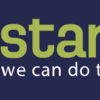 SciStarter
SciStarter
26 March 2020 12:00am
Enter the Zooniverse: Try Citizen Science for Yourself!
18 March 2020 12:00am
Tutorial: Train a TinyML Model That Can Recognize Sounds Using Only 23 kB of RAM
16 March 2020 12:00am
Accepting Applications: ArcGIS Solutions for Protected Area Management
4 March 2020 12:00am
Call for Nominations: Tusk Conservation Awards
3 March 2020 12:00am
Competition: Plastic Data Challenge
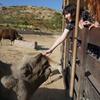 Ellie Warren
Ellie Warren
3 March 2020 12:00am
Hawai'i Conservation Conference
 Hawaiʻi Conservation Alliance
Hawaiʻi Conservation Alliance
28 February 2020 12:00am
Competition: The Artisanal Mining Grand Challenge
26 February 2020 12:00am
Listening to Nature: The Emerging Field of Bioacoustics
24 February 2020 12:00am
Team for Building of ML app for horse identification and conservation
20 February 2020 11:09pm
HWC Tech Challenge Update: Thermal Elephant Alert System
17 February 2020 12:00am
ICEI2020: 11th International Conference on Ecological Informatics
 ICEI 2020
ICEI 2020
14 February 2020 12:00am
Seafood fund seeks ideas for innovation projects up to £250k
11 February 2020 12:00am
WILDLABS Virtual Meetup Recording: Acoustic Monitoring
5 February 2020 12:00am
AI for camera trap public data
17 December 2019 9:20pm
A New Cloud Platform Unveils the Most Diverse Camera Trap Database in the World
17 December 2019 12:00am
[ARCHIVED] Workshop on Deep Learning Methods and Appliocations for Animal Re-Identification
25 November 2019 6:24pm
WACV2020 AI for Animal Re-ID: Deep Learning Methods and Applications for Animal Re-Identification
25 November 2019 12:00am
WILDLABS Virtual Meetup Recording: Drones
9 November 2019 12:00am
Camera Trapping: Incredibly Useful Resources List
5 November 2019 12:00am
Who wants to learn Python? Courses to get you started coding
2 May 2016 3:13pm
1 March 2019 9:20am
Hello everyone what are you wating for..
All US, UK, India users can enroll courses from Intellipaat (the largest IT trainng company)
check some of thier superb training list:
29 October 2019 4:52pm
Chuck's Python for Everyone course is available these days at www.py4e.com, and he's also created a course called Web Apps for Everyone www.wa4e.com. Both excellent resources, and he's a strong proponent for (and creator of) open source educational tools in general.
Lucy
Plant-Powered Camera Trap Breakthrough
15 October 2019 12:00am
Using Artificial Intelligence to Track Birds’ Dark-of-Night Migrations
9 October 2019 12:00am
Camera Trap Technology Symposium (Recordings): Bringing Developers and Users Together
2 September 2019 12:00am
ICCB 2019: 5 Key Discussions about the Future of Conservation Tech
21 August 2019 12:00am
Conservation biologists find new applications for AI tools
5 August 2019 2:57pm
Automated Identification of Indonesian Rhinos
27 July 2019 12:00am
[ARCHIVED] Position: UI/UX Machine Learning Engineer
8 July 2019 11:27pm
[ARCHIVED] Position: Senior Computer Vision Research Engineer
8 July 2019 10:42pm
Hello buzzing World!
7 July 2019 6:55pm



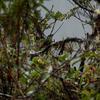











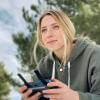






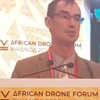


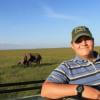









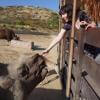








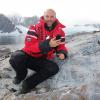
31 August 2017 9:06am
A couple of years ago I completed the Coursera course Programming for Everybody (Getting Started with Python) with Charles Severance. I found it really well paced and well taught. He's a very personable tutor, and has also written a free book Python for Everybody, available as a PDF.
I found the Coursera course on R Programming with Roger Peng to be more difficult to follow, but I'm not sure whether that was down to the teaching style or the language itself. For R, I'd definitely recommend the best place to get started is swirl - Learn R, in R!
Happy coding